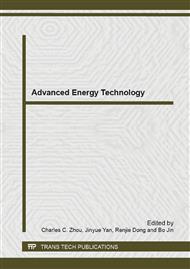p.800
p.809
p.813
p.818
p.825
p.830
p.837
p.844
p.849
Influence of Ignition Timings and EGR on Performance and Emissions of a Spark-Ignition Methanol Engine with High Compression Ratio
Abstract:
Influences of the ignition timings and EGR rate on performance and emissions characteristics of a spark-ignition methanol engine with higher compression rate have been researched experimentally. The methanol engine was obtained by retrofitting a direct injection diesel engine whose compression ratio was 18.0 and the methanol injectors have been mounted in intake manifolds. The experimental results have revealed that, the advanced ignition timing can increse peak in-cylinder pressure and shorten combustion duration period. The increased EGR rate can reduce peak in-cylinder pressure, lengthen combustion duration. The methanol engine has optimal EGR rate and ignition timings to obtain good performance and low exhaust emissions. The best compromise between the BSFC and exhaust emissions is reached at optimal EGR rate and ignition timings.
Info:
Periodical:
Pages:
825-829
Citation:
Online since:
June 2014
Authors:
Price:
Сopyright:
© 2014 Trans Tech Publications Ltd. All Rights Reserved
Share:
Citation:


